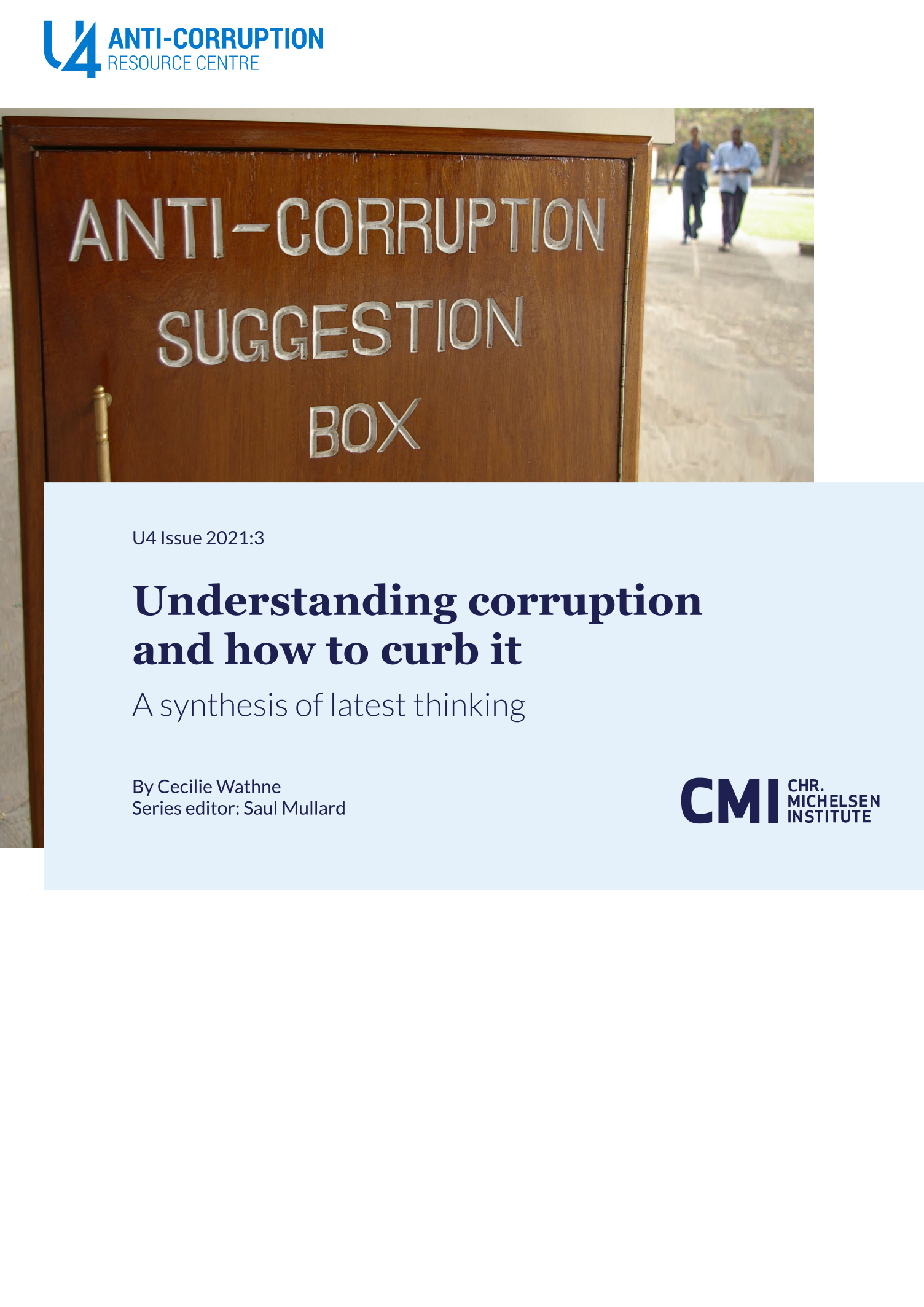Main points
- Corruption is not a disease or deviation, but the historical standard. No country has achieved zero corruption, nor is any country likely to do so soon.
- Corruption is complex and resilient. The process of moving from a high-corruption to a low-corruption society is long and non-linear. Even incremental improvements are difficult to sustain.
- There are many forms and degrees of corruption both across and within countries.
- Anti-corruption interventions need to be based on a context-specific understanding of the multiple reinforcing drivers of corruption, as well as the wider political economy, in a specific locality or country.
- There is no single blueprint. A unique combination of approaches, tools, and actors is needed to address the root causes of corruption in a given context.
- When corruption is systemic, anti-corruption efforts need to take a systems approach that goes beyond targeting individual ‘bad apples’.
- While there is no single path to reform, potential success factors include collaboration and coordination, building trust, taking advantage of windows of opportunity, building and harnessing political will and citizen support for good governance, changing expectations, and reshaping the policy arena.
- Anti-corruption interventions need to be flexible, politically responsive ,and designed with potential backlash in mind.
- There are limits to what anti-corruption interventions alone can achieve, as well as the role that donor agencies can play. The effectiveness of anti-corruption interventions depends on the wider political economy, including the policy arena.
- Successful anti-corruption efforts by donors may require a broader approach, one that considers the transnational dimensions of corruption and employs a whole-of-agency, or even whole-of-government, approach.



